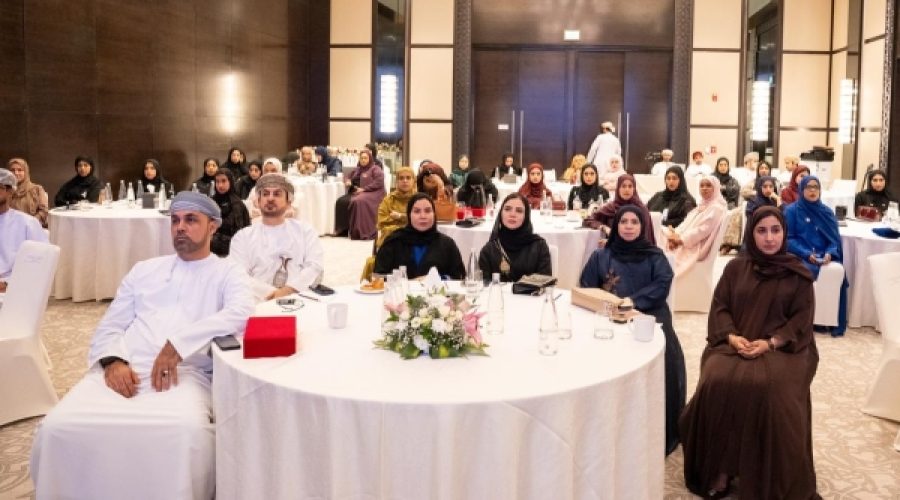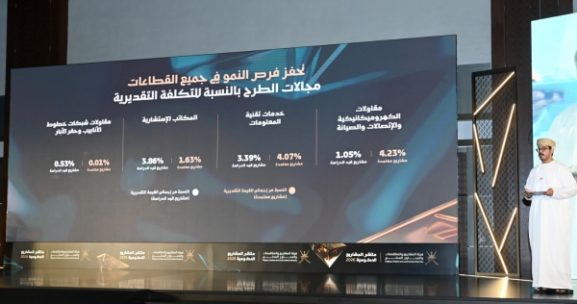Women’s Growing Influence in Oman’s Private Sector: Key Insights from GFOW Forum for Investors and Entrepreneurs
Muscat: Oman’s General Federation of Workers (GFOW) concluded a two-day conference on Tuesday focused on the retirement system for Omani women, recent amendments to the Social Protection Law, and female representation in the private sector.
The event, held from October 20 to 21 and led by the federation’s Women’s Committee, aimed to turn research findings and field experience into actionable measures to bolster women’s participation in unions, enhance workplace conditions, and promote equal opportunities in hiring and career advancement.
During the conference, GFOW signed cooperation agreements with Oman Arab Bank and NMC Healthcare to implement programs dedicated to supporting and empowering working women.
On the first day, Eng. Mohammed al Khaldi, strategic implementation adviser at GFOW, presented a paper titled “The Retirement System for Omani Working Women and the Impacts of the Social Protection Law Amendments.” The second day featured a presentation on “Women’s Representation in Private-Sector Establishments” by media researchers Khalisa Al-Rahbi and Sumaiya al Yaqubi.
GFOW highlighted that the qualitative study, developed in collaboration with the International Labour Organization and various government bodies, is being refined through ongoing analysis to ensure its recommendations align with current workplace conditions and needs.
The conference concluded with an awareness lecture on key Social Protection Fund services and beneficiary access, delivered by Khadija al Ajmi, head of legal review and contracts at the Fund.
Simultaneously, GFOW launched a public awareness campaign titled “A Woman-Friendly Workplace in the Private Sector” to encourage more flexible, supportive work environments that help women balance professional and family responsibilities.
Suad al Sulaimi, chair of GFOW’s Women’s Committee, emphasized the need for a deeper understanding of the challenges faced by working women across sectors and for stronger policies that respect their unique circumstances, including work–life balance, leadership access, and skills development.
Dr. Badriya al Wahibi, director of the Information and Research Centre at the State Council, praised the evidence-based approach of the discussions. She noted that the practical recommendations align with Oman Vision 2040, international conventions, and local laws, stressing the importance of clear implementation procedures and greater social awareness. Dr. al Wahibi also highlighted that the sessions reviewed maternity benefit provisions and the maternity insurance branch, recognized as significant achievements under the social protection framework, covering all employment and training contracts with potential for expanded scope and enhanced benefits.
Khadija Al Shihi, chair of the Women Journalists Committee at the Omani Journalists Association and senior programme producer at the Ministry of Information, commended the debates for addressing the real challenges faced by women in both workplace and family settings. She praised GFOW’s ongoing efforts to protect legal rights and improve safeguards enabling women to fulfill professional and social duties.
GFOW stated that the outcomes of the conference—including proposed initiatives, policy recommendations, and capacity-building needs—will guide future collaboration with partners in the banking, healthcare, and social protection sectors.
Special Analysis by Omanet | Navigate Oman’s Market
The GFOW’s focused efforts on advancing women’s participation and protections in the workforce signal a strategic shift towards more inclusive and equitable labor policies in Oman. For businesses, this means adapting to evolving social protection laws and fostering woman-friendly workplaces can enhance talent retention and corporate reputation. Smart investors and entrepreneurs should consider opportunities in sectors supporting women’s professional growth, such as flexible work solutions, childcare services, and skill development programs, while anticipating regulatory compliance and social responsibility as key long-term value drivers.



